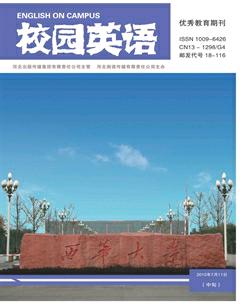Impacts of Different Culture on Management Style
陈国君
【Abstract】cultural differences affect the management behavior and management style.Participatory management style in the United States and instructional management style in China has a deep cultural roots.In terms of the type of management style,they are equal.As long as management style is consistent with its culture accordingly,the leadership will be effective.
【Key words】Participatory management; culture
1.Introduction
The reason why national culture affects the management style is that it affects the way subordinates respond.Under the pressure of culture leaders cannot choose their leading style at random,because expectations of their subordinates are based on their cultural basis.America's management style tends to democracy,decentralization,emphasis on self-management,and Americans value to achieve personal satisfaction rather than more commitment to duty or altruistic motives.In China,a good leader must have the noble virtue itself,the heart of love and the authority that employees can rely on.They tell subordinates what is expected of him,and how to complete the task.
2.The inquiry of cultural origin
2.1 Confucianism and Christian.It is Confucian culture that is the core of oriental traditional culture,but Christian culture is that of traditional culture in the west.Confucianism is thinking how to be a man.People view money as their value scale so as to ignore trust.In management the low trust will present lack of trust to the subordinates,and leaders don't want to listen to advice at a lower level,especially the different opinions.People accept high inequality between people in the deep hearts,and are willing to develop good relationships with leading place to meet their own interests.In American culture,they value God as the standard,establishing the relationship between people and that between people and God.Everyone is in the face of God only,and have nothing to do with the others in the world.Everyone has a different soul.Americans think they should voice their opinions in decision-making,and participate in decision-making to fully reflect the unique value of each person.
2.2 Rule of man and rule of law.Chinese traditional society is tied with blood relationship,and determine the behavior standard by personal relationship.Thousands of years of Chinese feudal monarchy power of the monarch has the largest authority.The majority of Chinese business operators,whether state-owned enterprises or private enterprises,have a common characteristic that is the operator has enormous influence on the authority of leadership.In western countries,the spirit of the rule of law were originally formed in ancient Greece,especially in the process of the establishment of the Athens rule,and is growing up by the constant struggle and compromise between the nobility and civilians.They pursue equality of opportunity,and have confidence in themselves.At the same time,leaders think subordinates are equal and should be respected.They discuss the proposed decision with subordinates.
3.Specific validation and comparison
3.1 Huawei company.As a Chinese,everyone must have heard Huawei company.Through a survey,we know that they like giving their subordinates clear order,and the subordinates must obey them.Under China's national conditions,Huawei and any other companies must be bound up with government,because there are so many administrative examinations and approvals.Companies don't have autonomy because of government intervention.Accordingly,this instructional style is continuing within the enterprises.
3.2 Apple company.It is participatory management that Apple's style is.The leader will take into account the consideration of the subordinates before making decisions.In addition,Apple also has a very complex selection mechanism of top leaders to ensure the development of the company.Steve jobs established the company in 1976,but he should be dismissed by the board of directors.Fortunately,he returned as chairman of the board of directors.Participatory management style shows that everyone can participate,and there is no absolute authority,and no one is irreplaceable.
4.Conclusion
Culture has a far-reaching influence on leadership style,but this effect decreased gradually along with the progress of globalization.Chinese companies are increasing demands for international leadership,Instructional types are decreasing,participatory management gradually increasing.At the same time,the scope of authority are expanding.But it is impossible to eliminate the influence of culture forever.According to the survey,it is effective to operate centralized and autocratic management style in China in the present environment condition,because it is consistent with its own culture.But with the development of the economy,especially in the face of the changing and complex international environment,it is difficult for instructional management style to guarantee the smooth development of the enterprises and win in the fierce competition.For China's leaders,it is essential to learn how to understand the subordinates,support staff,and build their self-esteem.They need to not only pay attention to the results,but focus on people.In the rapid economic development,Chinese culture will present its strong ability to regenerate and great inclusiveness.
References:
[1]汪太贤,艾明.法制的理念与方略[M].中国检查出版社,2001.
[2]Stephen P.Robbins,Mary Coulter.management.Seventh edition.

